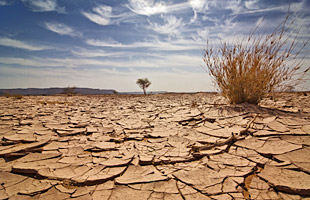Insight
Human populations have a tremendous impact on the natural resources that provide the food, water, energy, and shelter that they depend on. Island nations and low-lying countries are at risk from sea rise, existing diseases are spreading to new environments that are now warm enough for them to flourish, and there are major effects on food production/security with unpredictable precipitation.
Action
Addressing environmental issues often necessitates social change, community involvement, and improving gender status so that women can contribute their knowledge about the changing environment and strategies to meet new environmental needs, and protecting vulnerable groups, who are more at risk from the effects of climate change.
 Change
Change
In Bolivia, we worked with local organizations and community groups to reduce pollution and restore the natural habitat of Lake Titicaca.
We advocated with communities and small businesses to improve waste management practices at local tanneries. We conducted radio campaigns and community mobilization to change the common practice of grazing cattle by the lake, instead keeping them penned and their waste out of the water. We also engaged communities to monitor biodiversity to track the health of the local environment by tracking communities of native birds.
These efforts prevented more than 1,000 tonnes of manure from contaminating the lake every year. That manure was converted into organic fertilizer and sold by local farmers, increasing their income by USD750 annually, and nearly doubled annual family income.